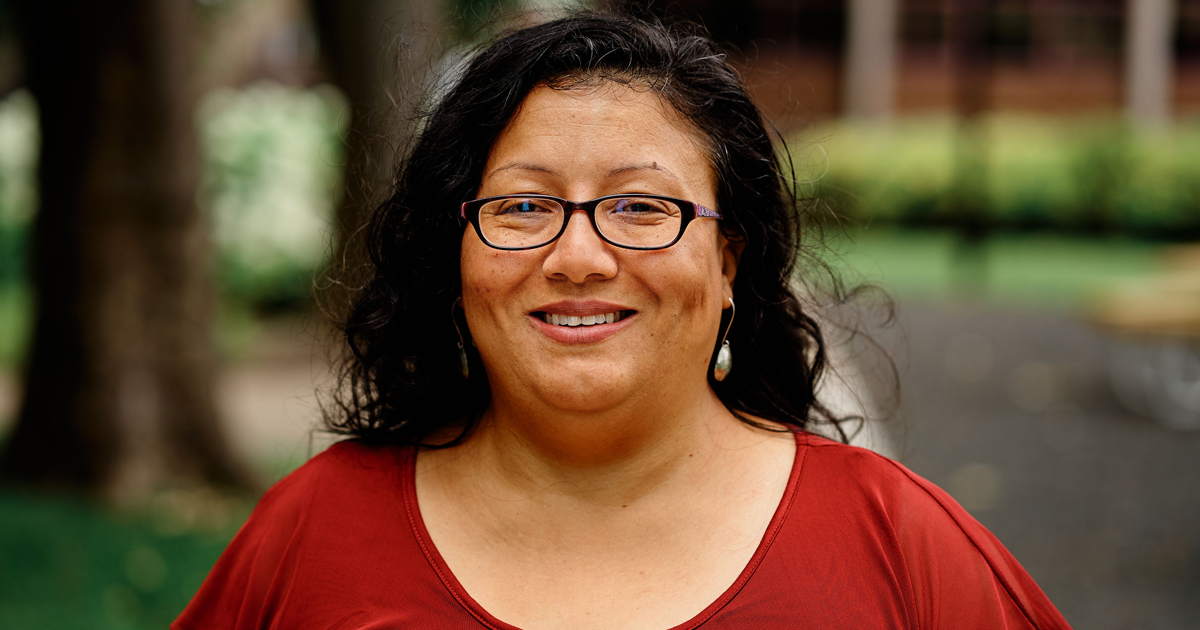La Salle University
La Salle professor brings lessons on anti-racism into the classroom
June 29, 2021

In her courses, like Afro-Descendants in Latin America, Luisa Marcela Ossa, Ph.D., illustrates racism’s pervasiveness. She shows her students that it doesn’t always come in headline-grabbing forms like police brutality or hate crimes.
“I draw parallels between the U.S. and Latin America,” said Ossa, an associate professor of Spanish in La Salle University’s Department of Global Languages, Literatures, and Perspectives. “I’ve shown students stories about Black women who are news anchors in the U.S. who wanted to wear their hair naturally and weren’t allowed and got fired. We’ve discussed hair discrimination in the Dominican Republic, for example, where it’s still difficult for Black women to wear their hair naturally because it’s deemed unprofessional. There were Afro-Dominican women students in the course willing to share their personal experiences with these issues and their own struggles which was an impactful learning experience for their non-Black peers.”
Ossa knows first-hand what hair discrimination looks like. As a child, she routinely witnessed her mother, a Black woman, straighten her hair before heading off to work. She shared this experience with Lasallian educators and students during a discussion on systemic racism held shortly after the murder of George Floyd in Minneapolis in May 2020, explaining how her mother “felt obligated” to alter her appearance as a means of strengthening her job security.
That early life lesson in racism—the pressure she said her mother and women of color often feel to conform to society’s Eurocentric definition of acceptable—is an example of the lessons on diversity, equity, and inclusion that Ossa incorporates into her courses.
Ossa is a leading voice on La Salle’s campus for equity and inclusion. She served as one of three co-chairs of La Salle’s Joint Commission on Diversity, Equity, and Inclusion, a campus-wide endeavor for which its members were charged with completing a deep examination of La Salle’s campus environment, culture, and policies to develop an achievable plan and recommendations for the University.
A well-regarded scholar in her field, Ossa co-edited a book highlighting the African and Asian influence in Latin America and the Caribbean entitled Afro-Asian Connections in Latin America and the Caribbean which was recently released in paperback. After the 2020 election, her expertise reached national audiences when she authored an editorial for Marie Claire in which she dispelled the myth of the “Latino Vote,” a problem she said that stems from a general lack of understanding in America of what the terms Latino and Hispanic represent.
“There’s this idea that Latino is a race because the Hispanic-Latino category was started by the U.S. Census, not by people themselves,” Ossa said. “Latino is not a race; it’s a group of people with very loose geographic ties. Latino is usually used to refer to people of Latin-American descent, so that doesn’t even mean you speak Spanish, but it’s a term that has been used almost like a racial group. So it has an effect of erasing people because there are white Latinos, Indigenous Latinos, mixed Latinos, Black Latinos, and Asian Latinos.”
Ossa also is an advocate for the incorporation of diversity and anti-racism coursework into curricula across all subjects—including science, technology, engineering, and math.
“It’s very relevant to (STEM), as just one example,” said Ossa, whose scholarly areas of expertise include Afro-Hispanic literatures and cultures. “In the past, science has been used to exploit Black people and other people of color. One of the most known examples is the Tuskegee Experiment, but there are many other examples. The erasure of Black scientists and mathematicians, in curriculum is another example. Justice, diversity, equity, and inclusion and anti-racist curriculum are relevant to all fields.”
—Patrick Berkery